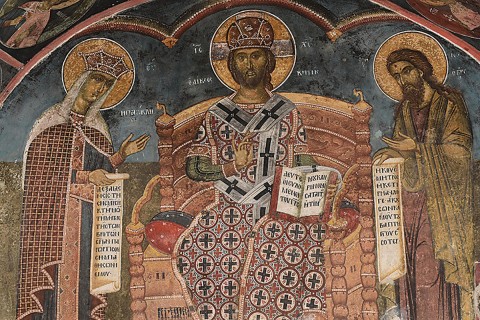The New Testament’s most dangerous book for Jews
Reading and preaching Hebrews without supersessionism

In 1993, as a visiting research student at the Hebrew University in Jerusalem, I read for the first time a passage in the rabbinical text Midrash Tanchuma, a text that has influenced me profoundly. The passage begins with a discussion of the differences between the written Torah (the five books of Moses or, in a wider sense, the entire Hebrew Bible) and the oral Torah (Jewish oral traditions). Then follows a Midrash, in which it is suggested that Moses also wanted the Mishnah (the oldest part of the oral Torah) in writing. However, God said no, because God foresaw that the peoples of the world were going to translate the Torah and read it in Greek, and then they would say: Anu hen Yisrael (“We are Israel”). God therefore wanted the Mishnah to be a secret, because there are those who will use the Jewish scriptures as a theological weapon aimed at the Jewish people.
This is clearly a reference to the claim of the Christian movement. Indeed, numerous Christians take for granted that this is the singular Christian position—that is, that Christians must claim that they are “the true Israel” or “the new Israel” or simply “Israel,” at the expense of the Jewish people. Jews have been targeted by numerous anti-Jewish ideologies throughout the ages, but only Christendom has claimed that it has replaced Israel, that Hebrew Bible texts actually are about Christians, and that they can only be read with Christian glasses. At the time of Augustine (354–430), it was not controversial to invert the distribution of roles in the Bible. Hence, he read the words in Psalm 59:11—“Slay them not, lest my people forget”—as an instruction about how the church (“my people”) should treat Jews (“them”). In other words, the church fathers developed a hermeneutics that decentered and even disinherited Jews and Judaism.
One New Testament text has done more than any other to cement the notion that Judaism and Christianity are two separate covenants, that the newer covenant is better, and that this is fundamental to Christian faith: Hebrews. This is not surprising. Hebrews includes 14 of the New Testament’s 33 uses of the Greek word diathêkê (“covenant”) and 13 of its 19 uses of kreittôn (“better”). If this text is a comparison between Christianity and Judaism, is it so far-fetched to draw the conclusion that Christianity is the better religion? After all, the text explicitly states that “in speaking of ‘a new covenant,’ [God] has made the first one obsolete. And what is obsolete and growing old will soon disappear” (8:13).




